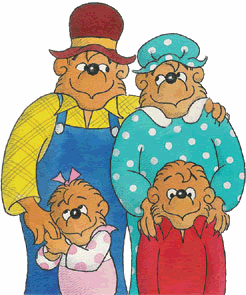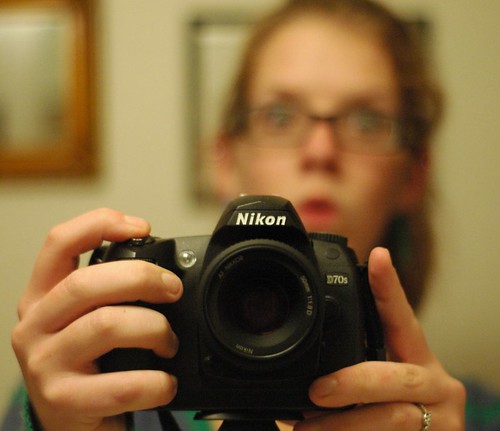new posts in all blogs
Viewing Blog: disobedient writer, Most Recent at Top
Results 1 - 23 of 23

sell your novel. not your soul.
Statistics for disobedient writer
Number of Readers that added this blog to their MyJacketFlap:
By: Kirsten Lesko,
on 1/27/2012
Blog:
disobedient writer
(
Login to Add to MyJacketFlap)
JacketFlap tags:
Add a tag

Every now and then I attend workshops in which I am forced to write for three minutes from a prompt that draws virtually no story from me. Such prompts can take the form of a bunch of unrelated words that should never appear in the same novel let alone on the same page like “chrysalis, gun powder, athlete’s foot, schizophrenia and acidophilus.” Or they can be an unlikely premise such as, “A fire ravishes your apartment building. You are the only survivor and are forced to take custody of your deceased neighbor’s pet aardvark.”
I write my heart out. I really do. For three full minutes, I am convinced that my banter with my new aardvark is pitch perfect. That I’ve made a strong case for an OTC athlete’s foot medication (made from gun powder, acidophilus and the chrysalis of a rare African butterfly), which has been discovered to cure schizophrenia. I think, “See Kirsten – you should push yourself more often. Look how talented you are!”
And then we have to read aloud.
This is the point when it becomes obvious that my classmates have seen this prompt before – that I’m the only one who didn’t cheat. Because what they read is good. They have fresh imagery, innovative symbolism and three-syllable verbs. Some of them receive applause. I, on the other hand, get a reaction only from my teacher. And it’s usually delivered two octaves above her normal voice. “…Interesting….OK…Who has another?”
I wish I could blame the prompts. But the truth is, my first drafts have historically been terrible. That is, until I attended a prompt-free workshop that suggested the Rule of Ten (which I believed was first created by John Vorhaus, but lots of people have ripped it off as I’m doing now, so I can’t be sure).
The idea is that for every one great idea a writer has, he has nine crummy ones.
Your first several ideas are usually cliché — you’ve plagiarized from books or movies without even knowing it. So every time you have to make a decision, write out ten ideas. Your only decent idea should be somewhere near the end.
I am not kidding when I say this saves me hours of revision in each scene. I use this technique on almost every page to decide anything from defining character motivation to determining who goes in a scene to choosing setting.
Do you have any tricks to write a better first draft? Please share it in the comments.
P.S. I know this is technically only one technique and not ten as the title insinuates (but does not promise if you read closely!). But Barbara of Writing Time just taught me that the easiest way to get a reader’s attention is to put a number in the headline and I wanted to try my new trick. The number one just didn’t impress. Question is – did it work?



 10 Comments on 10 Steps to Improving your First Draft, last added: 4/28/2010
10 Comments on 10 Steps to Improving your First Draft, last added: 4/28/2010

I had the good fortune of meeting John Steinbeck’s son Thomas this weekend. He said a lot of inspiring things that will eventually make their way into future blog posts, but his fans have so distracted me that I must first dedicate a post to them.
The first one who caught my attention was a sweet old lady who needed help walking and carrying her books. I offered assistance. Less because I’m nice and more because I like old ladies. They’re like Yoda. I’d hoped she’d share a nugget of wisdom that would alter my worldview into something more…peaceful. She didn’t.
She ignored my outstretched arms and thrust her books at the event coordinator. Why? Because this was the inroad to Mr. Steinbeck. Not long afterward, I overheard my Yoda telling the star of the show that she knew someone who knew someone that lived on his dad’s old street.
“That’s an awkward introduction!” I wanted to yell. “You sound desperate!” But I had no supporters. Every person around me was clambering to get a piece of the Pulitzer Prize winner’s son.
A grown man virtually begged for the phone number of the career-groupie in attendance (otherwise known as a Steinbeck biographer). Is there anything more pitiful than stalking a stalker? I soon discovered yes. Because before long, some college-aged long-hair got in Mr. Steinbeck’s face and waxed poetic about his undying passion for the cypress tree (the cypress tree, folks) and isn’t that a coincidence? The word cypress appears in the title of Mr. Steinbeck’s first novel!
It depressed me.
I’ve been studying Buddhism recently because a major player in my novel misinterprets Eastern philosophies to tragicomic results. Perhaps I will suffer her fate. But for now, I hold dear a Buddhist teaching that has set me free: the accomplishments of those you hero-worship are within your potentiality.
We’re all a little guilty of hero-worship. I am obsessed with Kundera’s philosophical musings. Nabokov’s unrelenting prose. Guillermo Martinez’s conviction to thwart his characters’ goals to the brutal end.
Who do you hero-worship? Why? Now go accomplish it yourself!






By: Kirsten Lesko,
on 4/23/2010
Blog:
disobedient writer
(
Login to Add to MyJacketFlap)
JacketFlap tags:
Add a tag
A couple of weeks ago, Karen G of Coming Down the Mountain told us that Virginia Woolf spent her first advance on a cat. Woolfe was very humble about the whole thing, poking fun at herself for fantasizing that if she wrote a novel, she’d be able to buy a motor-car. I, too, fantasize that an advance will buy me a motor-car. This one:

And this view from my writing room:

But in reality, I know I’ll spend every last dime on this:

In the end, Woolfe concluded that “A woman must have money and a room of her own if she is to write fiction.” Not much has changed. Except now we need even more money because we have to hire publicists.
What do you plan to do with your advance? Will you buy yourself something fun? Will you funnel it all into publicity? Are you one of those radical thinkers that plans to give the money back to the publisher for marketing?







By: Kirsten Lesko,
on 4/21/2010
Blog:
disobedient writer
(
Login to Add to MyJacketFlap)
JacketFlap tags:
novel,
writing,
characterization,
study,
Craft,
university,
Iliad,
Homer,
Master's,
Add a tag

From time to time I audit Master’s courses at the local university. While formal education normally derails my intellectual pursuits, I am a total nerd. I can’t resist it. I love homework. Not to mention classroom discussions.
In a recent lit class I had the kind of professor who had nothing to say, but used every four-syllable word in the SAT study guide to do it. I forgave him his skullet. The tie-dyed shirts. The way he held his chalk like a reefer. But I simply could not get over the way he squinted his eyes, held the chalk-joint like he was about to hit it and said, “The vivacious exposition effectually saltates off the page!”
Because I am addicted to 4.0’s, I dutifully attended his office hours for requisite brown-nosing, and it was here that he finally became worth my $500 (get your minds out the gutter, fellow bloggers!). I had no cohesive theme in my endeavor to compare Homer’s Iliad to some essays from the Vietnam War. Professor Skullet leafed through my books and said, “I see you’ve partaken in underscoring innumerable passages.”
“You mean I highlight a lot?”
“Indeed.”
And then, for the first time since the semester began, he said something: “Peruse the highlighted text. It’s the map of your mind.”
What advice. Pages and pages of seemingly unrelated prose all pointed to the same theme: my position on war. A position I could never really articulate before. My highlighting taught me what I was learning.
And furthermore (this is where I bring it all back to writing, folks) I found that I had been drawn to snazzy sentence structure, unlikely pairings of words and various characterization tricks. Highlighting helped me define what writing techniques I was ripe to experiment with.
I highlight/underline all my reading now for this purpose. It teaches me more than any homework or classroom discussion could, irresistible as they are. How do you decide what your writing needs?







I finally took the plunge and started a Twitter account. But not before I wrestled with all the reasons I didn’t want one. As Natasha of Nancy Drew Too puts so well, “The thought of getting a Tweet every time someone goes to Starbucks makes me crazy.”
I couldn’t agree more. As writers, we already struggle to find time for our fiction. Do we really need another time suck? And for those of us who already have blogs, is micro-blogging honestly necessary? Or is it redundant?
I looked up my favorite authors on Twitter and while some of them do have accounts, most of them don’t. In fact, a good portion of the award-winners I love have virtually no social-interaction online at all. So why all the pressure for authors to Tweet?
Darren Rowse of Problogger asked his community why they use Twitter. Responses ranged from “Brand Exposure” to “I have no idea.” But even in the absence of an overwhelming trend in the responses, Rowse concludes that Twitter is an effective tool.
And he’s not the only one. Book marketing guru Tony Eldridge echoed Phyllis Zimbler Miller’s statement that Twitter “Is the most powerful social media tool currently available on the Internet.” Many of my debut novelist friends swear by it. And even I must admit, with publishers and agents on Twitter, it seems like a good place to learn about the business.
In the end, I chose to go with Twitter because my novel is almost finished, I do enjoy marketing, and I wanted to give it a fair shake. What are your thoughts about Twitter? Do you consider it a waste of time or valuable marketing tool?







By: Kirsten Lesko,
on 4/16/2010
Blog:
disobedient writer
(
Login to Add to MyJacketFlap)
JacketFlap tags:
Add a tag

I love exchanging comments with bloggers who are in the same stage in their careers as I am. I learn a lot and it helps me feel less alone. Plus, we all help promote each other with guest blogging, virtual book tours, retweeting and so forth. And when we’re all famous we can blurb each other’s books.
There is no doubt about it that the friendships with aspiring writers will help us in the future. But what about spreading our wings beyond our peer groups? What about planting seeds with people who seem out of our leagues?
It’s never too early to start.
Part of promotion requires rubbing elbows with the big guys, even when it makes us feel shy. There are a lot of people out there that we can establish relationships with starting now so they are there when we need them.* This can be as simple as following and commenting on high-profile blogs, or as involved as volunteering at local writer’s conferences. I’ve taken baby steps in networking with the following:
- Agents & authors in my genre (through blogs)
- Podcasting & online radio show hosts
- High profile book reviewers
- Writing conference staff
- Local bookstore owners
- Famous authors (at events)
How about you? Is there anyone out of your league that you would like to have a relationship with? Have you made any efforts yet? Can you share any advice with your fellow writers?
*I am in no way encouraging obnoxious or stalker behavior. I suggest only meaningful, professional and considerate interactions.






By: Kirsten Lesko,
on 4/14/2010
Blog:
disobedient writer
(
Login to Add to MyJacketFlap)
JacketFlap tags:
Add a tag

One of the main reasons I loved writing as a kid was because it was private. I imploded in the face of ridicule. Writing was a safe place, free of judges.
All of a sudden, it’s not.
Publishing is exposing. And it starts before the book deal. As soon as authors start playing around with social media that door opens. Somehow I’ve manage to avoid this experience on my blog (thanks, fellow bloggers!) but I know it’s only a matter of time. And I’ve definitely taken some sucker punches in writer forums already.
Hilarious blogger The INTERN puts it all in perspective in an interview with Michael Humphrey. She says, “If a troll left a nasty comment on Wanda Jones’ blog, Wanda Jones would probably cry. If a troll leaves a nasty comment on INTERN’s blog, INTERN can say ‘whatever, yo!’ and just delete it.”
A sage, that INTERN.
Daily Blogging Tips takes a more serious approach to trolls and even offers tips on how to cope. Probably not a bad idea. Because the more fans writers get, the more haters they attract, too. Negative feedback can show up in reviews, on blogs, and even in interviews.
Have you been publicly criticized yet? How do you cope? If you haven’t, is it something you’re concerned about? Or do you think you’ll fare well?







Below are some great marketing posts I’ve stumbled upon this week and last. I hope you find them helpful, too!
Touring In A Virtual World. This is the most valuable marketing post I’ve read in a while. Start building relationships now with blogs that are relevant to your book so you can leverage them when you need them.
Do You Have a Sell Sheet? Sell sheets are brochures for book signings and other author events. Yvonne Perry provides a comprehensive bulleted list of necessary components for the sell sheet.
Twitter Etiquette. Twitter can be one of the most powerful marketing tools on the internet. But it comes with its own social rules. Jody Hedlund does a great job breaking them down.
7 Ways to Open Marketing Doors Online. Excellent article by Tony Eldridge on how to maximize your online presence.
Beat the Promotion Learning Curve Before the Call. Detailed article on why pre-publication publicity is important, plus some s few tips on how to do it.






By: Kirsten Lesko,
on 4/9/2010
Blog:
disobedient writer
(
Login to Add to MyJacketFlap)
JacketFlap tags:
Add a tag

The hardest part about writing my novel has been the pitch – that single, compelling sentence (or two sentences) that agents expect me to rattle off at every conference encounter. It always sounds something like this, “Well there’s this underdog, and he…I don’t know. I mean there’s this girl. She misinterprets Buddhism. I mean really misinterprets it…” You get the idea.
For unrelated reasons, I recently read Save the Cat by Blake Snyder, a very popular screenwriting text that many of you have heard of, if not purchased. I’ll get into this book’s relevance to novel writing in a future post, but what really struck me was how the book transformed my pathetic, clunky, circumlocutious (I get points for using that word, right?) pitch.
Though novelists sometimes look down on movie people as sell-outs to rigid structure and mass appeal, there’s one thing we can’t take away from them: they know how to sell stories. And that’s the function of the pitch (in the movie biz, the logline).
Though he does not present the info in this exact order, Snyder says all loglines must contain:
- Adjective to describe the hero
- Adjective to describe the bad guy
- Compelling goal we identify with as human beings
- Irony
- Compelling mental picture…often including a time frame
- Audience [implied] and cost [we novelists can ignore this aspect]
- A killer title
He gives examples such as:
“A businessman falls in love with a hooker he hires to be his date for the weekend” – Pretty Woman
“A just-hired employee goes on a company weekend and soon discovers someone’s trying to kill him” – The Retreat
More examples of movie loglines are available and searchable by genre with a free login at http://www.hollywoodlitsales.com/ under archived spec sales.
After reading a million of these, I discovered that they all basically introduce hero, antagonist and plot pivot 1. This realization absolutely liberated me and made my pitch fall into place. Snyder has lots more helpful tips on enriching and practicing the pitch, but in observance of his copyright I’m going to stop there.
And since not all writers are created equal, I’m providing below two pitch formulas that did not work for me, but that helped some of my peers write excellent pitches:
1. X+Y=Z (Character X does Y and Z happens)
2. Sentence one states character, situation, and objective. Sentence two is a yes/no question that asks if character can overcome opponent and disaster. I took this formula directly from an excellent older post by the Story Sensei. She also discusses the “What if” method here.
Have you had trouble writing your pitch? Or are you one of those lucky plot-driven people that had your pitch before the novel? Have any pitch formulas worked for you?


 13 Comments on Writing the Pitch, last added: 4/9/2010
13 Comments on Writing the Pitch, last added: 4/9/2010

I’m kicking myself for saying the funniest Pet Peeve wins. Your submissions were all hilarious! The sheer passion with which all of you typed was enough to earn everyone a copy of Confederacy of Dunces. Not to mention your references to things like billowing body hair, “plots that shoehorn in morality,” stray hairs flying off the dashboard, the “Soap Pimp,” husbands that press pause at the slightest noise, unpedicured feet, wooden sticks and countless others…You have made my choice next to impossible.
Alas, I am a broke writer and can only award the best book ever to one of you. So the winner is…..
Leah Raeder!
And not just because you almost have the best last name known to authors. But because your answers knocked my socks off. Congratulations Leah, and thanks to everyone for the laughs.
And now I leave you with an anecdote about my ultimate pet peeve: faking it. As many of you know, I attended some workshops from an annoying publicist that I call “Workshop Lady.” She claimed she’d teach us how to pitch ourselves to local news shows as experts on topics related to our novels. Theoretically, this would increase the amount of times we could get on the news to plug our books.
The instructor clearly knew whose novels covered what beforehand, because when illustrating the feasibility of her expert plan, she only called on:
- The doctor writing a novel about medicine
- The twin writing about twins
- The convict writing about prison
I raised my hand. She ignored me. I raised it again. Nada. Finally, I yelled out, “What if you aren’t an expert on what you’re writing about?”
Begrudgingly, she turned to me and asked, “What’s your novel about?”
“Uhh…a girl who wants to kill herself?” I replied because I still sucked at my elevator pitch (more on that topic later).
“Perfect! You’re an expert on suicide!”
“But I’m not. I only know about this one girl…and she’s pretend.”
“So make yourself an expert.”
“You mean get a PhD in psychology?” I asked.
“No. Go to the CDC website, find a bunch of stats on suicide and use them to pitch yourself as an expert.”
I don’t know about all of you, but I am NOT COMFORTABLE with that. No local news expert here. And least not for this novel.
How about you? Are there any topics in your novel that you can draw on to pitch yourself as an expert? Something with, shall we say, lower stakes? Perhaps gardening? Parenting? Snowboarding? Please share below!
P.S. Extra credit to anyone who can edit this sentence better than I did: “She claimed she’d teach us how to pitch ourselves to local news shows as experts on topics related to our novels.”


 10 Comments on Contest Winner and Faking It, last added: 4/7/2010
10 Comments on Contest Winner and Faking It, last added: 4/7/2010












































So glad you’re back!